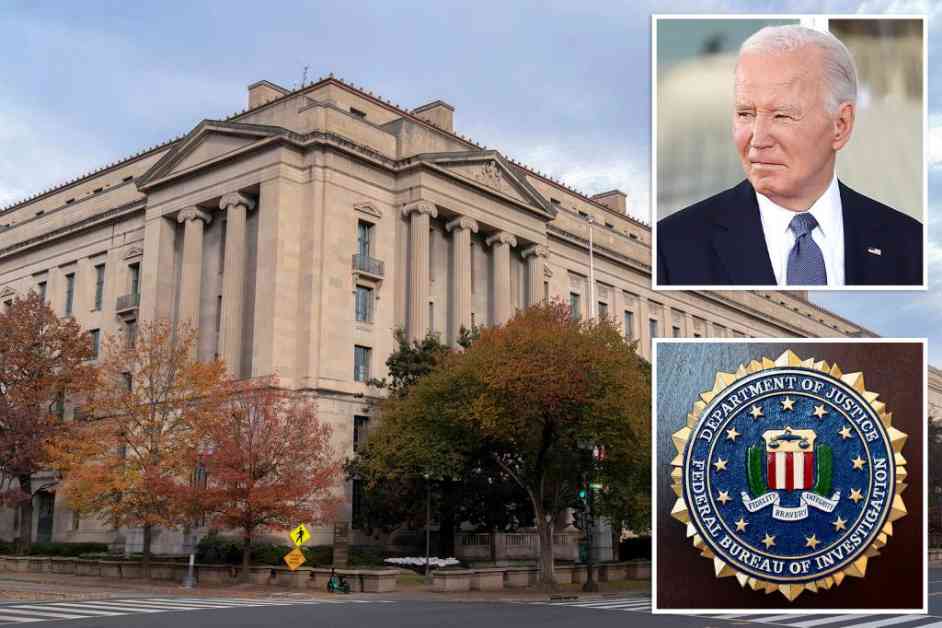A senior federal prosecutor in Washington has made headlines after resigning over alleged improper demands by appointees of former President Trump’s administration. Denise Cheung, who led criminal cases at the U.S. Attorney’s Office in Washington, took a stand against what she perceived as an unwarranted request to launch a criminal investigation into a government contract awarded under former President Biden. Her resignation letter, reviewed by Reuters, detailed her refusal to initiate a grand jury investigation due to a lack of evidence, leading to an unexpected order to pursue an asset seizure to prevent the recipient from accessing government funds.
Cheung, who dedicated over 24 years to the U.S. Department of Justice, expressed her commitment to upholding the Constitution in her letter to interim U.S. Attorney Ed Martin. Her decision to step down reflects a growing trend among career Justice Department prosecutors who are pushing back against what they view as political interference in criminal investigations by the prior administration. In a show of solidarity, numerous officials across different cities, including Washington and New York, have resigned or been removed since President Trump’s inauguration, signaling a turbulent period within the department.
The unprecedented events leading to Cheung’s resignation underline the contentious relationship between career prosecutors and the Trump administration. The fallout has been felt throughout the Justice Department, with significant restructuring, reassignments, and dismissals, particularly among those involved in investigating the Capitol riots on January 6, 2021. The departure of seasoned prosecutors like Cheung amplifies concerns about the politicization of law enforcement and the erosion of institutional independence.
Challenges Faced by Career Prosecutors
The challenges faced by career prosecutors in maintaining the integrity of their work have come into sharp focus under the Trump administration. With accusations of political meddling and undue pressure to pursue investigations without adequate evidence, prosecutors like Cheung find themselves at a crossroads. The delicate balance between political oversight and prosecutorial independence has been tested, leading to unprecedented clashes and resignations. The public scrutiny surrounding these events underscores the importance of upholding the rule of law and ensuring that justice is served without bias or undue influence.
Despite the upheaval within the Justice Department, career prosecutors continue to navigate complex legal landscapes, often under intense scrutiny and political pressure. Their dedication to upholding the law and seeking justice remains unwavering, even in the face of adversity. The resignation of officials like Cheung serves as a stark reminder of the challenges inherent in the justice system and the critical role that career prosecutors play in upholding the principles of fairness and accountability.
Implications for Legal Institutions
The implications of Cheung’s resignation and similar events reverberate beyond individual prosecutors and highlight broader concerns about the independence and integrity of legal institutions. The fallout from these conflicts raises questions about the future of law enforcement, the role of career prosecutors, and the impact of political interference on the justice system. As public trust in legal institutions wanes, the need for transparency, accountability, and ethical conduct becomes more pronounced.
In the wake of these developments, the legal community, policymakers, and the public at large must confront the challenges posed by political interference in law enforcement. Safeguarding the independence of prosecutors, upholding the rule of law, and protecting the integrity of the justice system are paramount in ensuring a fair and equitable society. The events surrounding Cheung’s resignation serve as a call to action for all stakeholders to uphold the principles of justice, accountability, and the rule of law.
Cheung’s decision to resign underscores the complexities and tensions inherent in the justice system. As career prosecutors continue to navigate political minefields and ethical dilemmas, their commitment to upholding the rule of law remains steadfast. The events leading to her resignation serve as a powerful reminder of the challenges faced by those tasked with seeking justice and upholding the principles of fairness and integrity in an ever-evolving legal landscape.












